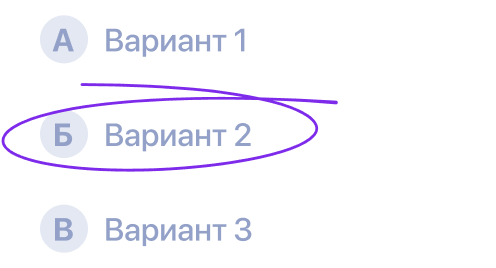International dispute settlement
Выбери формат для чтения
Загружаем конспект в формате pptx
Это займет всего пару минут! А пока ты можешь прочитать работу в формате Word 👇
INTERNATIONAL DISPUTE SETTLEMENT
Article 1(1)Objective of the UN Charter
One of the major objectives of the United
Nations is “to bring about by peaceful means,
and in conformity with the principles of justice
and international law, adjustment or settlement
of international disputes or situations which
might lead to a breach of the peace
Art. 2(3) of the Charter
All Members shall settle their international
disputes by peaceful means in such a
manner that international peace and
security, and justice, are not endangered
Art 2(4): non use of force
Art 33 UN Charter
(1)The parties to any disputes, the
continuance of which is likely to endanger
the maintenance of international peace and
security, shall, first of all, seek a solution by
negotiation, enquiry, mediation,
conciliation, arbitration, judicial settlement,
resort to regional agencies or
arrangements, or other peaceful means of
their own choice
(2) The Security Council shall, when it
deems necessary, call upon the parties to
settle their dispute by such means.
Art 33 UN Charter
Does it create a legal obligation? Yes
What legal obligation?
Free choice of means
Good faith [conduct]
Sincerity as to willingness to settle
Seriousness
Meaningful negotiations
In cases of failure continue with different means
Cooperate (with court etc)
Implement decisions
Good faith: Obligation of result? [Nuclear Weapons
AO: yes]
Other treaties etc
1899 Hague Convention for the Pacific Settlement of
Disputes [PCA]
1928 General Act for the Pacific Settlement of Disputes
1948 American Treaty on Pacific Settlement
1957 European Convention for the Peaceful Settlment
of Disputes
1970 GA Resolution on Friendly Relations
1982 Manila Declaration for the Peaceful Settlment of
Disputes
Article 52 UN Charter: primacy of regional
organisations
What is a dispute?
A disagreement over a point of law or fact, a
conflict of legal views or interests between two
parties [PCIJ, Mavrommatis Palestine
Concessions 1924]
international
Nature of dispute: political/legal/factual
It all depends on type of claim+prescription
Threshold: opposing views crystalise [no
hypothetical but action is not needed:
Headquarters AO/Arrest Warrant]
Settlement: solution, accommodation
NEGOTIATION
Settlement of disputes by direct discussions or exchange of views
through state representatives
Direct
Influence outcome
Non-binding
Settle dispute directly-lead to other dispute settlement mechanisms (ICJ,
arbitration etc)-identify dispute [exchanges can identify disagreement]
Good practice:
Frame problem/agenda/process/determine issues
Determine goals – prioritise
Split to different issues
Package deal
Sources of power: communication and influence: having alternatives; knowing facts,
culture, people; empathy; good working relations and trust; persuasion (message,
structure, delivery, style); make message compatible with opponents [hard lineresentment]
Obstacles: fundamental conflict of interests -non recognition (Israel/Palestine)-is
the dispute ripe?-general political situation-support over negotiators
Fact Finding/ENQUIRY
Ascertain facts/law
Art 90 API: International Humanitarian
Fact-Finding C/sion [investigate and
establish violations of IHL]
UN organs (SC/GA/HRC)
EU: Independent Fact Finding C/sion on
the Conflict in Georgia [investigate
origins and causes of war and IHL, HR,
IL accusations]
Ad hoc by states
Fact finding
Dispute over fact preliminary to dispute
settlement
Narrow scope: avoids legal questions but
difficult to decouple from law. A lot
depends on composition, will of parties,
mandate
Non-binding
Facts are political/political clashes
Will parties accept that their version of
facts may be wrong?
MEDIATION/Good offices
Settlement of disputes undertaken by a third state, group
of state, an individual, an agency or an international
organization.
Facilitates contact-source of info-intervenes-honest
broker
but medition Offers concrete proposals for statement of
substantive questions-Non binding
Beagle Channel, Iranian Hostages (Algeria). 1978
Camp David (US)
Mediator: listen, trust, fair, able to discern main
interests, possibility to deliver
Conciliation
C/sion or single person that defines terms of settlement
provided they are accepted by parties
(fact finding/enquiry + mediation + arbitration)
Institutional:
OSCE Court of Conciliation and arbitration 1995
[disputes between States which may include conflicts
in respect of territorial integrity, maritime delimitation, or
environmental and economic issues]
Art 284 LOSC [disputes concerning the interpretation
or application of the Convention]
ARBITRATION
Resolution of differences between states
through a legal decisions of one or more
umpires or of a tribunal chosen by the parties
Legal but extra-judicial
Principle of party autonomy:
establishment/jurisdiction/procedure
Procedure: confidential and adversarial
Basis of decision: parties set the law
equity (Rann of Kutch)
Permanent Court of Arbitration
End of arbitration/enforcement
Parties determine end date
Win win or win lose
Binding
No enforcement (participation/legal
culture/provided in the agreement [Rainbow
Warrior])
Interpretation/revision/ appeal
Challenges to validity: invalid or terminate
agreement (King of Spain Award) ; excess of
powers; corruption of a member of tribunal;
failure to state reasons; essential error; serious
departure from rules of procedure
Arbitration C/sion on Yugoslavia
(Badinter C/sion): 12 opinions:
dissolution, self-determination,
recognition, state succession etc
Croatia/Slovenia border dispute (2015
breach/2016 continue/2017 decision
South China Sea arbitration
(Philippines/China





